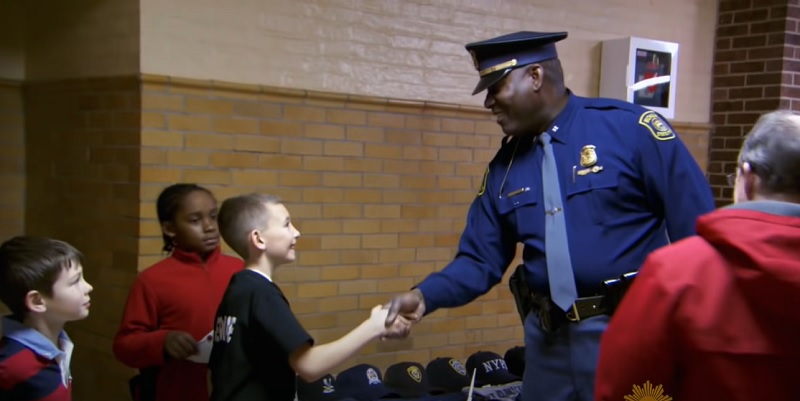
The headlines would lead the average citizens to believe that the population of our country has collectively developed an adversarial relationship with its police. Television ratings show just the opposite. Americans are fascinated by the police.
Perhaps the reality is that Americans are fascinated by crime. Maybe it’s the pursuit of justice or at least a happy ending where the bad guys get their comeuppance. It could just be a wanton intrigue about murder to confront the universal awareness of our own mortality. Nevertheless, when we look at television and books, the big sellers are murder, mystery, and police procedurals.
Whether it is reality that fosters the interest in fictional crime stories, or the stories that create due respect for crime fighters is an interesting question that this article doesn’t pretend to answer, but it may portend well for our real-life men and women behind the badge. Surveys have consistently shown respect and trust for law enforcement even in the darkest days of protests and anti-police political rhetoric.
Of course, police officers were lampooned even in the early days of media with the Keystone Cops theme showing up in mild-mannered teasing. Marshal Dillon, a regular contributor to Dodge City’s Boot Hill cemetery, Broderick Crawford as the no-nonsense agent of the Highway Patrol, the marginally capable team of Car 54, among others created an image of likable characters some of whom were heroic and some funny but mostly respected for getting the job done. Andy Taylor and Barney Fife spanned the extremes from the laconic, unflappable common sense public servant to the posing bravado of a self-absorbed lawman.
The occasional crooked cop was appropriately portrayed as an abomination whether in a Perry Mason episode or on Adam-12 and Dragnet. On one memorable assignment, Sgt. Joe Friday was working internal affairs for LAPD and quoted former Chief William Parker saying that the problem with police work is that you have to recruit from the human race.
The 1960s and 70s was a time of mistrust of government in general with upheavals related to racial tension, the Vietnam War, and Richard Nixon’s criminal activity. Dirty Harry expressed the frustrations of citizens as law and order seemed at risk. We rooted for Charles Bronson as he took up the cause of vigilantism in Death Wish. Real-life scandals in urban police departments were newsmakers, as commissions and studies made new recommendations for police accountability and increased training. As the Biblical wise man, Solomon said, there is nothing new under the sun.
Law and Order, NCIS, and CSI (plus their spin-offs) have dominated television ratings. Mostly showing law enforcement in a positive light, along with Blue Bloods and the recently added Rookie and Chicago PD among others, attempt to deal with current issues and realism (other than some wild plot lines).
In August of 2020, there were headlines announcing the results of a Gallup poll showing that trust in the police had hit a record low. One tier of the response was to the question of a great deal of trust and that fell to below 50% at the time of that survey. As anyone who has taken a survey knows when you rate your McDonald’s or Kohl’s experience you have at least 5 layers to mark. This ranking is called a Likert scale in research terminology. If a poll shows that fewer persons ranked law enforcement as a 5-star performer in the trust department, that doesn’t mean that more have fallen into the no-star or 1-stare rank. Therefore, it is disingenuous for the newspapers to headline that half of the population mistrusts the police. That is a perversion of the poll results.
In any case, polls nearing the end of 2021show a dramatic increase in trust in law enforcement. The percentage of minorities favoring reduced police funding was itself reduced after watching criminal activity rise as police activity declined. By the last quarter of 2021, we saw headlines about police officers returning to schools, demands for increased spending for law enforcement, cities begging officers to return to their agencies, and dramatic messages to anti-police politicians during the November elections.
The history of the United States is one of a constant attempt to balance the power of the government and its armed agents against liberty for law-abiding citizens while fighting criminal activity within Constitutional boundaries. Law enforcement will always engage the attention of an active citizenry, and therefore has a constant opportunity to merit the trust of those whom they serve.